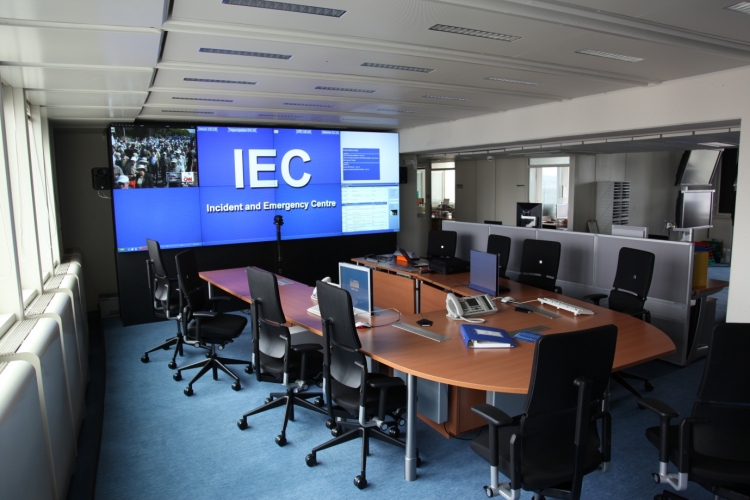Readily available and practical hands-on experience is essential to deal with accidents involving nuclear or radiological exposure. At the same time, it is necessary to have solid and comprehensive emergency preparedness and response plans to ensure that nuclear and radiological threats, such as increased levels of radiation, are handled in an adequate, safe and secure manner.
Prompted by the Fukushima accident and the growth in activities related to the development of nuclear power in the region, the Cooperation Council for the Arab States of the Gulf (GCC) is developing a Regional Radiological and Nuclear Emergency Preparedness Plan (RNEPR) for the countries in the Gulf region. The plan is the first of its kind; it aims to put in place a joint regional emergency response system to ensure that if a nuclear or radiological disaster strikes, Member States will be able to provide effective and appropriate emergency response in a coordinated and integrated manner.
"The essential part of the RNEPR is linking the Gulf countries with joint monitoring stations to measure radiation levels, and to exchange data so each country can warn the others if high radiations levels are detected", said Muhammad Mubarak bin Dinh, executive vice president of the Supreme Council for the Environment (SCE) of Bahrain.
The IAEA, through its technical cooperation (TC) programme and its Incident and Emergency Centre (IEC), is providing assistance to the GCC countries in the area of emergency preparedness and response.
On 27-29 August 2013, the IAEA hosted a workshop at IAEA headquarters in Vienna to review the draft RNEPR and to provide recommendations for improvement and advice on the future directions to be taken. The workshop also assessed the RNEPR for consistency with the IAEA Safety Standard Series No. GS-R-2, Preparedness and Response for a Nuclear and Radiological Emergency. The IEC provided the technical expertise to review the draft RNEPR. Representatives of the GCC Secretariat and five Member States took part in the event. During the meeting, participants had the chance to visit the IEC, which is the international focal point for preparedness and response to nuclear and radiological incidents and emergencies regardless of their initiating cause.
"Having a regional response mechanism, which combines resources of several countries, considerably strengthens Member States' capabilities to provide emergency response", said Mr Ali Boussaha, Director of the IAEA Division for Asia and the Pacific. "We are thrilled to witness such a collaborative endeavour towards a regional approach to emergency preparedness and response and are eager to assist the GCC to develop a concrete plan for such cooperation", he added.
As part of the review process of the draft regional plan, the IAEA IEC experts presented an overview of the IAEA's work and role with regards to emergency response and preparedness as well as the relevant IAEA Safety Standards with which the regional plan will comply.
The workshop also discussed the needs of the Gulf countries with regards to human resource development, training, equipment and know-how necessary for the implementation of the plan. At the end of the workshop, follow-up actions for future activities and collaboration with the IAEA were outlined.
The event took place as part of the IAEA's regional TC project 'Supporting the Introduction of Nuclear Power for Electricity Generation and Seawater Desalination.'




